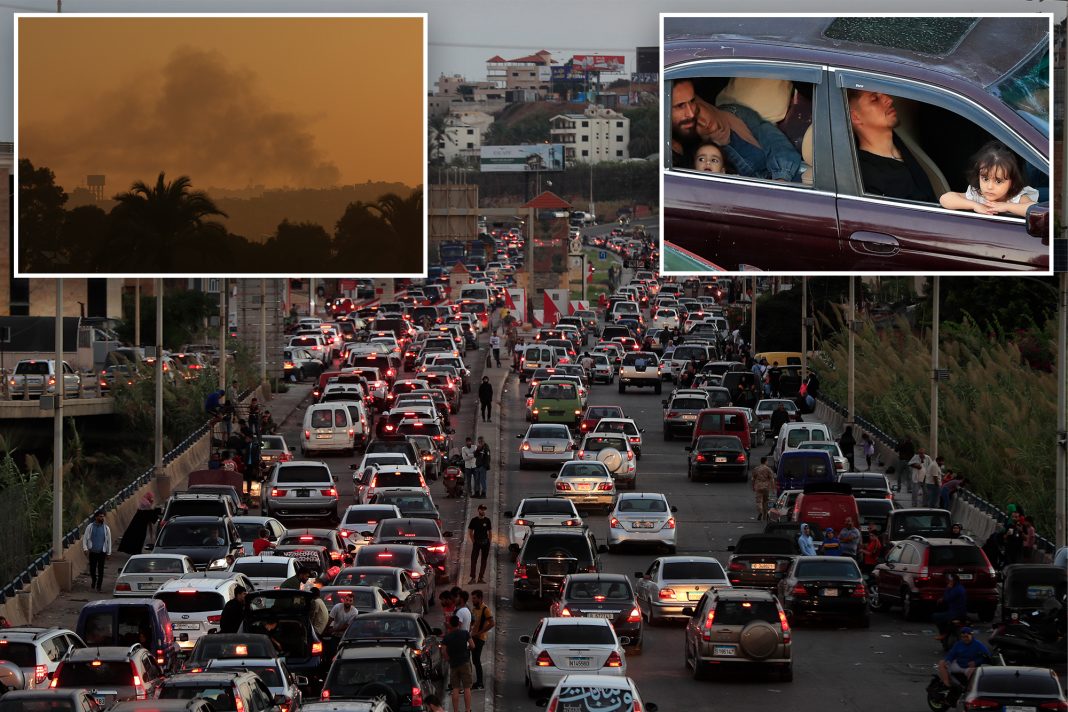As the conflict between Israel and Hamas escalates, the ramifications are being felt far beyond the immediate battlegrounds of Gaza and southern Lebanon. The latest reports from Palestinian officials indicate that Israeli airstrikes in Khan Younis resulted in the tragic loss of at least seven lives, with 15 others injured, many of whom were women and children. This harrowing event marks yet another chapter in a long history of violence that has seen Gaza’s population bear the brunt of military operations.
The airstrikes in Khan Younis reflect the broader context of an intensifying conflict that began on October 7, when Hamas militants launched a devastating attack on southern Israel, claiming the lives of approximately 1,200 individuals, predominantly civilians. In the wake of that assault, Israel has vowed to take decisive action against those it views as threats, declaring a relentless military campaign aimed at dismantling Hamas’s operational capabilities. Gaza’s Health Ministry has reported staggering casualty figures, with over 41,000 Palestinians killed since the outbreak of hostilities, a significant portion of whom are believed to be non-combatants, including women and children.
In tandem with the situation in Gaza, the clashes between Israel and Hezbollah have reached a fever pitch. Recent military engagements saw Hezbollah firing over 100 projectiles into Israel, targeting regions deep within the country, including the northern city of Haifa and areas in the occupied West Bank. Although Israel’s defense systems intercepted most of these missiles, the conflict has nonetheless resulted in injuries from falling debris. As a response to the escalating violence, Israeli forces have executed extensive airstrikes across southern and eastern Lebanon, with reports indicating nearly 500 fatalities and more than 1,600 wounded in just a single day of conflict. This has led to a mass exodus from southern Lebanon, reminiscent of the significant displacements seen during the 2006 Israel-Hezbollah war, as thousands of individuals fled toward Beirut, causing severe traffic congestion on the main highway.
The humanitarian crisis in the region grows increasingly dire as civilian populations become entangled in the crossfire. People fleeing southern villages find themselves trapped in traffic jams, desperately seeking safety amid ongoing airstrikes. Local humanitarian organizations are struggling to keep pace with the needs of those who have been displaced, highlighting the challenges that arise in such a volatile environment.
In a global context, the conflict has prompted reactions beyond the immediate region. Airlines in the United Arab Emirates, a major travel hub, have begun canceling flights to Lebanon due to the heightened risk posed by the ongoing cross-border fire. This decision affects many Lebanese expatriates living in the UAE, illustrating the far-reaching impact of regional instability on global travel and commerce.
In light of these developments, it is crucial to recognize the complexity of the situation. While Israel asserts that it takes measures to minimize civilian casualties, the reality on the ground tells a different story. The ongoing conflict raises pressing questions about the humanitarian implications of military actions and the broader geopolitical dynamics at play. Experts emphasize the need for an immediate ceasefire and diplomatic engagement to prevent further loss of life and to address the underlying issues that have fueled decades of hostilities.
As the world watches the situation unfold, the hope remains that dialogue and diplomacy can pave the way for a resolution, allowing the communities caught in the crossfire to rebuild their lives amidst the devastation. The path toward peace is fraught with challenges, but it is a journey that must be undertaken if there is to be any hope for a stable and secure future in the region.
